Synopsis
Catalysis is demonstrated through the decomposition of hydrogen peroxide, including a test for oxygen gas. The clip explains how catalysts function in terms of active sites and highlights the advantage of catalysts not being consumed in the reaction.
- Programme: Science Topics
- Episode: Catalysis
- Channel: BBC Two
- Broadcast year: 1983
- Chemistry
Licence: ERA Licence required
UK only
Staff and students of licensed education establishments only
Cannot be adapted
Add Notes
More clips from Science Topics
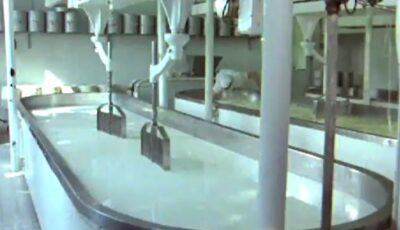
Biological Catalysts | Science Topics
Biological Catalysts | Science Topics
The video provides examples of biological catalysis, such as enzyme use in cheese production and human digestion, followed by an explan...

Catalysis | Science Topics
Catalysis | Science Topics
Prog looking at catalysts and how they speed up chemical reactions, and how this knowledge is used in industry, farming and modern pollution devic...
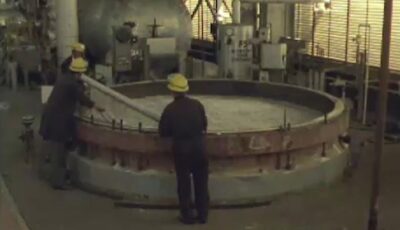
The Haber Process | Science Topics
The Haber Process | Science Topics
Spec references J248: C6.1d. The video starts with an overview of the industrial production of nitrate fertiliser through the Haber proces...

Biological Catalysts | Science Topics
Biological Catalysts | Science Topics
The video provides examples of biological catalysis, such as enzyme use in cheese production and human digestion, followed by an explan...

Catalysis | Science Topics
Catalysis | Science Topics
Prog looking at catalysts and how they speed up chemical reactions, and how this knowledge is used in industry, farming and modern pollution devic...

The Haber Process | Science Topics
The Haber Process | Science Topics
Spec references J248: C6.1d. The video starts with an overview of the industrial production of nitrate fertiliser through the Haber proces...
More resources about Chemical Changes
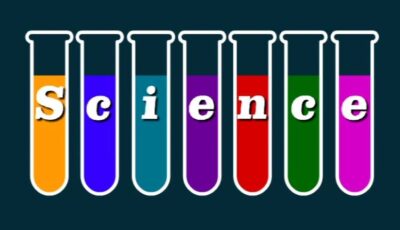
Acids, Bases and Salts | GCSE Bitesize Revision
Acids, Bases and Salts | GCSE Bitesize Revision
Spec references J248: C3.3d, C3.3e, C3.3f, C3.3h, C4.2a J250: C3.3d, C3.3e, C3.3f, C3.3h, C3.1g. This video introduces acids ...
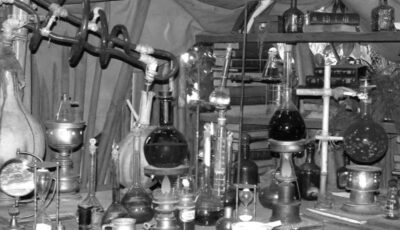
Acids, Bases and Salts 2 | GCSE Bitesize Revision
Acids, Bases and Salts 2 | GCSE Bitesize Revision
Spec references J248: C3.3d, C3.3e, C3.3f, C3.3h, C4.2a J250: C3.3d, C3.3e, C3.3f, C3.3h, C3.1g. This video introduces acid...

Biological Catalysts | Science Topics
Biological Catalysts | Science Topics
The video provides examples of biological catalysis, such as enzyme use in cheese production and human digestion, followed by an explan...

Catalysis | Science Topics
Catalysis | Science Topics
Prog looking at catalysts and how they speed up chemical reactions, and how this knowledge is used in industry, farming and modern pollution devic...
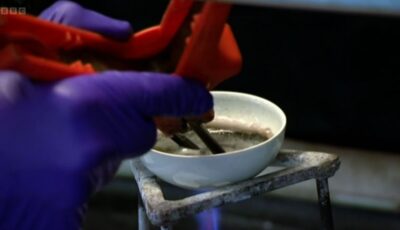
Electrolysis - Discovery of Potassium | Curriculum Bites
Electrolysis - Discovery of Potassium | Curriculum Bites
Spec references J248: C3.4b J250: C3.4b. Professor Jim Al-Khalili recreates the electrolysis experiment that lead to...

Electrolysis | GCSE Bitesize Revision
Electrolysis | GCSE Bitesize Revision
Spec references J248: C3.4a, C3.4b, C3.4c, C3.4d, C3.4e J250: C3.4a, C3.4b, C3.4c, C3.4d, C3.4e. Explanation of how ionic substances ca...

Electrolysis 2 | GCSE Bitesize Revision
Electrolysis 2 | GCSE Bitesize Revision
Spec references J248: C3.4a, C3.4b, C3.4c, C3.4d, C3.4e J250: C3.4a, C3.4b, C3.4c, C3.4d, C3.4e. Explanation of how ionic substances ...

Measuring the Rate of Reaction | GCSE Bitesize Revision
Measuring the Rate of Reaction | GCSE Bitesize Revision
Spec references J248: C5.2a, C5.2c, C5.2d, C5.2e, C5.2f J250: C5.2a, C5.2c, C5.2d, C5.2e, C5.2f. This video provides ...

Rates of reaction | Curriculum Bites
Rates of reaction | Curriculum Bites
Spec references J248: C5.2c, C5.2d, C5.2e, C5.2f J250: C5.2c, C5.2d, C5.2e, C5.2f. Introduction to rate of chemical reactions and collis...

Reactivity of Group 0, 1 and 7 | Curriculum Bites
Reactivity of Group 0, 1 and 7 | Curriculum Bites
Spec references J248: C4.1a. C4.1b J250: C4.1a. C4.1b. A detailed explanation of the reactivity of Group 0, Group 1, and Gr...

Reversible Reactions - the Haber process | GCSE Bitesize Revision
Reversible Reactions - the Haber process | GCSE Bitesize Revision
This video provides an overview of ammonia production through the Haber process, briefly touching on the ne...

Reversible Reactions | GCSE Bitesize Revision
Reversible Reactions | GCSE Bitesize Revision
This video provides examples of reversible chemical reactions and visually explains how dynamic equilibrium is achieved. It int...

The Haber Process | Science Topics
The Haber Process | Science Topics
Spec references J248: C6.1d. The video starts with an overview of the industrial production of nitrate fertiliser through the Haber proces...

The race is on | Bitesize Science
The race is on | Bitesize Science
The rate of a chemical reaction depends on the temperature, concentration, particle size and any catalysts present.
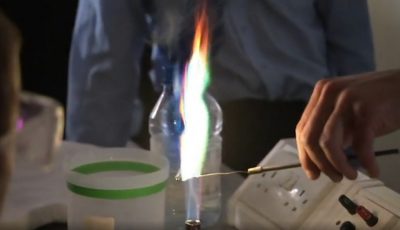
What chemicals to use to achieve certain colours in fireworks | Rocket Science
What chemicals to use to achieve certain colours in fireworks | Rocket Science
In this classroom experiment students explore how different chemicals react when burned and le...
